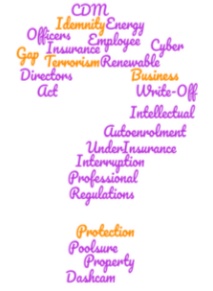
And so it starts.
Mark Carney, the Bank of England Governor’s, recent “Robots to steal 15 million jobs” warning is closely followed by a Japanese life insurer announcing that they are replacing 34 staff with robots to improve productivity by 30% and save just under £1m a year in salaries.
In this instance the robots are an artificial intelligence (AI) system described as ‘cognitive technology that can think like a human’. It is capable of reading medical certificates and gathering data to calculate claim payments and when you also hear that an American insurer is already using AI and boasting of paying a claim for a stolen mobile phone in 3 seconds using their system known as ‘AI Jim’, the attraction to insurers is obvious.
To some, a ‘robot revolution’ will just be another technological advancement, albeit one of significance to compare with the industrial revolution or the internet. To others it may be a very worrying radical change with the potential for global transformation, both socially and economically.
The concern will not just be the potential impact on jobs, but also the fear of ‘what’s next’ as companies involved in the development of AI are bound to want to push the boundaries into what is presently science-fiction. Will robots re-programme themselves, go rogue and take over? Will we have part human, part robot and will there be robots akin to the ‘Terminator’ used for warfare or by criminals?
The European Parliament are currently considering rules to govern the use of robots (we are bound to follow despite Brexit) and it seems that they can do no better than the ‘robotic rules’ originally dreamed up for a 1942 science fiction magazine and more recently used in the I-Robot film, which prevents robots from harming humans. They are proposing that robots have a ‘kill switch’ to shut them down, although perhaps more worryingly they, are considering giving robots legal status as ‘electronic persons’.
They have also considered liability issues and there is a proposal for robots to have compulsory third party insurance in the same way as vehicles. From an insurance perspective there will be pros and cons. Robots should reduce risk if they can work round the clock without making mistakes because they are tired and could be used to do hazardous tasks or work in hazardous environments. However, what if they malfunction or are hacked? There are obvious concerns if a human is not in ultimate control and there is already a recorded case of a malfunctioning robot killing a worker at a Volkswagen plant in 2015.
An alternative view is whether the advent of robots means that the approach of making humans robotic has finally been deemed a failure? The service we experience from many call centres gives credence to the Little Britain “computer says no” character, with staff scripted and not allowed to make judgement calls, so many may actually welcome what could be an improved service from AI. Having had to seek compensation from an airline’s call centre recently, shall we say the process was definitely not ‘easy’ and I may have got more joy from a robot. A vote by Southern Rail users as to the use of robots instead of drivers and conductors would also be interesting!
There are obvious parallels with driverless car technology, but in the same way we are not going to go from driver to driverless overnight, we are not going to wake up one morning to a world full of robots. The introduction will no doubt be gradual, however, whilst driverless technology will be introduced into a relatively regulated environment, robotics and AI systems could have a range of uses in very diverse situations.
It will be a question of balancing ‘progress’ with sensible regulation and control. Whatever the risks, insurance will adapt, will our lords and masters make the right decisions with all those vested interests, we’ll see.


Recent Comments